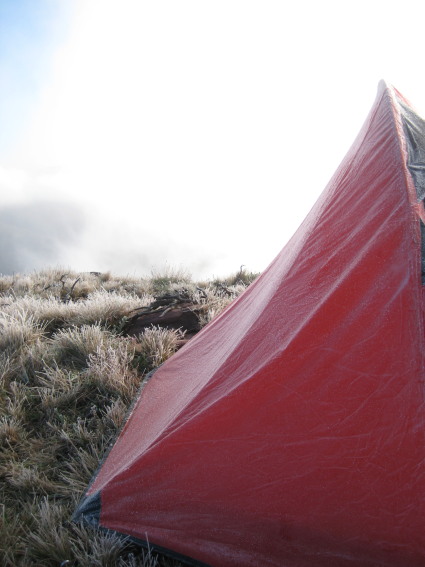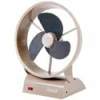Camping Tent Care
Before you go camping, learn how to care for your tent. If you take care of it properly, your tent will last a lifetime.
With a good tent over your head, you can sleep soundly without worrying about wind, rain, bugs, and other critters disturbing your peace. Take good care of your tent, then you can just enjoy every camping trip. Listed here are some camping tent care tips that will help you extend the life of your tent.
Seam Sealing
The best time to seal the seams is when you do a trial setup at home. Hose it down with water and check inside for any leaks. Let your tent dry completely, and then apply the seam sealer to the areas you noticed to be leaking. The sealant usually dries very quickly and efficiently. Be sure to use the seam sealant in a well ventilated area.
A ground cloth will preserve and protect your valuable investment. A
ground cloth
is much easier and less expensive to replace than your tent floor. When you do
place a ground cloth under your tent, make sure that it is slightly smaller than
the floor of your tent. It could collect a puddle of rainwater under the tent if
it extends beyond the tent edge.
Use a Ground Cloth
Leaving the rain fly on even on clear days is a good protection from the sun. It
will also protect your tent from bird droppings, sparks, and tree branches. It
is easier, also less expensive to replace the rain fly than the whole tent. If
your tent doesn’t have a rain fly, try putting a large tarp over the top of your
camping tent for extra sun and rain protection.
 Photo by Luke
Photo by Luke
Protect the Top of the Tent
Protect the Tent Poles
If your tent poles have hinges, you can help them last longer if you lubricate them with a spray-silicone lubricant. Try not to scratch your tent poles’ anodized coating. The coating protects the metal from the weather and they may rust if the anodized coating gets chipped.
Keep Inside Clean
When you keep the inside floor of your tent clean, it prolongs the life of your
tent. It is a good idea to keep the fly of your tent closed to keep out dirt and
insects. Another thing that you can do is place a mat outside the tent to wipe
your feet on. You may even want to leave your dirty shoes outside. You’ll be
surprised that your tent will stay much cleaner.
A
whiskbroom
and dustpan are handy tools for sweeping out the dirt and leaves that will
inevitably appear, no matter how careful you are. You can pack them right in
with your tent poles and stakes.
It may be wise to use a tarp to cover the inside floor of the tent. It will
minimize greatly the wear and tear that can grind away your floor with extended
use.
Another great tip to help you protect the interior of your tent is to avoid
touching the sides of the tent as much as possible. Your skin has natural oils
on it that can be corrosive to the waterproof coating of the tent.
Chemicals and other substances that you may have inside your tent may damage the
tent fabrics. Insect repellant, aerosol sprays (like hairspray), stove fuel, and
leaking batteries are all detrimental and may harm the tent material. NEVER
spray insect repellant directly on your tent. The tent can also be damaged by
acid rain. Be sure to clean the tent well after each use. Rinsing it with cold
water will help prevent damage.
Don't Cook Inside
Protect from Chemicals
Tent Cleaning
After use, set up the tent and hand wash it with cold water, rinse it well and
air dry it completely. You can also wipe stubborn spots with a soft sponge or
rag and mild detergent. Never use abrasives or tough brushes to scrub a tent.
Strong soap or chemicals can actually ruin your tent or affect the waterproof
coating. And never ever machine wash a tent or put it in the clothes dryer.
If your tent has stubborn tar or tree sap stuck to it, just dust them with
cornstarch or dust to keep it from sticking to other parts of the tent during
storage.
Clean the dirt from all poles, stakes, and the tent bottom before storing. If
you camped near salt water, you should rinse them in fresh water and let them
air dry to prevent corrosion.
Keep Your Tent Dry
If your tent gets damp from rain, frost, dew, etc. Make sure it is properly
dried out before you store it. Never store it until it is completely dry to
avoid the possibilities of mildew and odors. Damp storage breads mildew, and
will damage the fabric, coatings, and weaken the seams and threads. Try leaving
the tent bag open to allow extra moisture to escape.
Sometimes it may be necessary to take your tent down while it is still wet. Be
sure to set it up as soon as possible at home and let it dry thoroughly before
storing it.
Put the tent poles and stakes in a separate sack, they can tear or poke holes in
your tent.
Putting your tent away unfolded is the best way to store it. Packing the tent
folded along the same crease lines repeatedly will wear out the material along
the fold long before the rest of the fabric. The tent will wear out faster and
may even crack along the excessive creases. Stuffing your tent into the bag
after use makes the creases different every time.
A tent should not be stored sitting directly on concrete. The chemicals in the
concrete are detrimental to your tent.
Storage
These tent care tips are intended to help you on your way toward a rewarding
camping trip. Use good judgment and care for your tent carefully to help your
tent last as long as possible.









